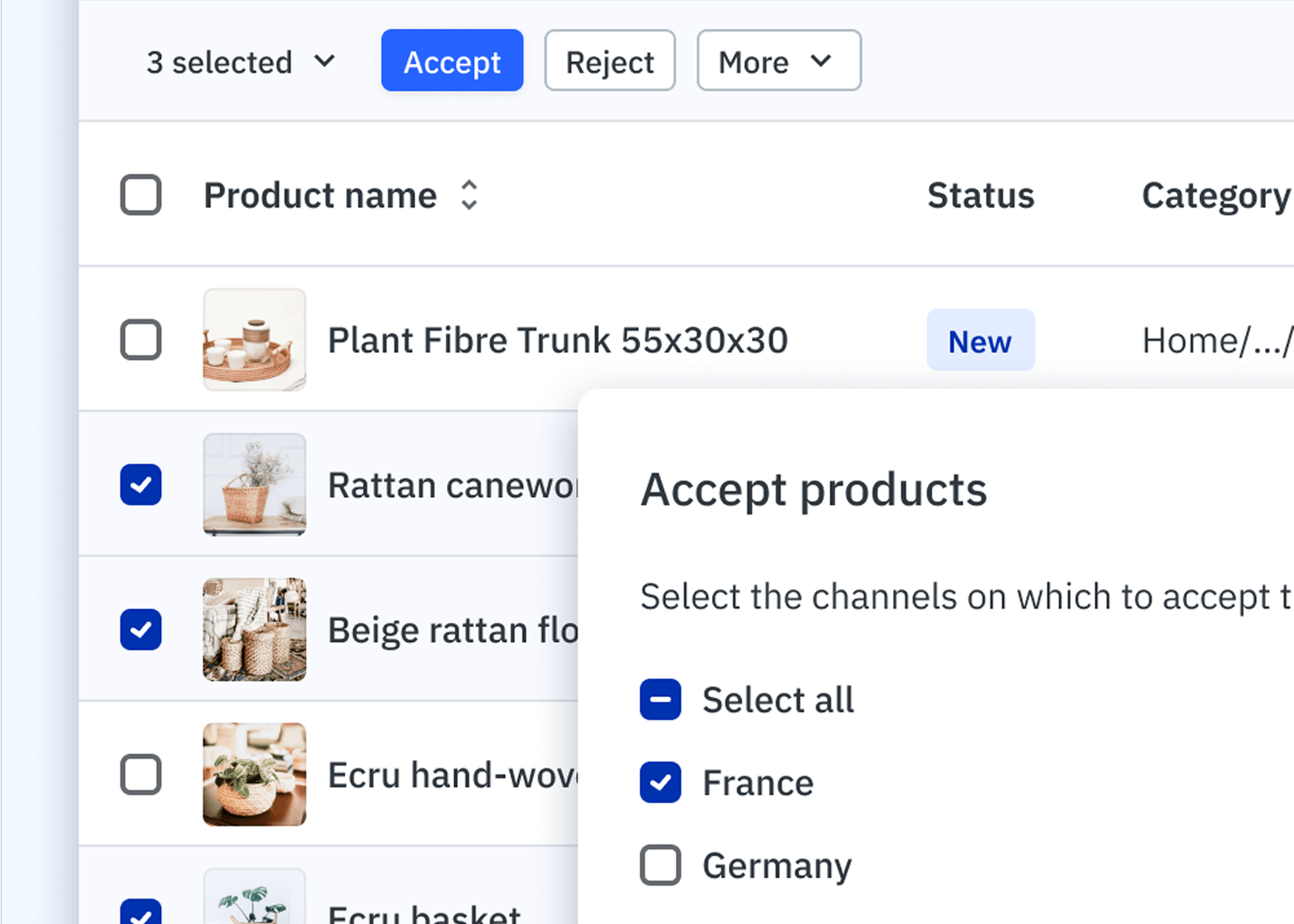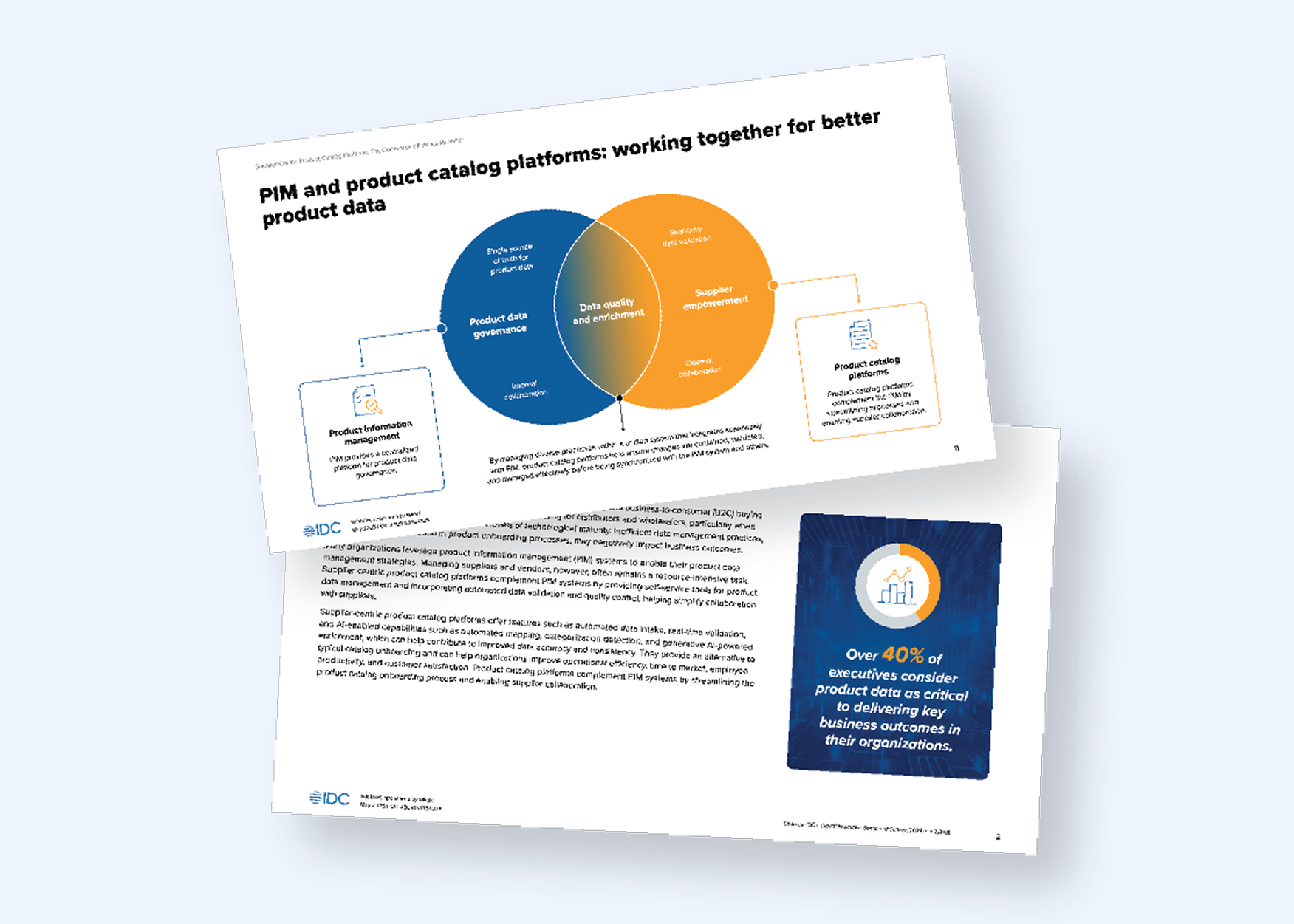The automation gap in product data management and what it really costs your business

Here's an uncomfortable truth most retail and distribution leaders aren't confronting: Your manual product data management isn't just inefficient—it's actively undermining your competitive position.
While organizations focus on high-profile digital transformation initiatives, they're bleeding millions through an often-overlooked vulnerability. Recent studies reveal that poor data quality costs organizations an average of $12.9 million annually, with some companies losing up to 25% of their potential revenue.
The real challenge isn't just about managing product information — it's about recognizing that traditional approaches to data management have become existential threats to business success.
While more than 40% of executives believe in the critical nature of accurate product information, according to a recent IDC study*, this awareness hasn't translated into meaningful action. Many organizations continue to cling to labor-intensive processes, mistaking familiar inefficiency for necessary complexity.
This gap between awareness and action is particularly dangerous now, as the complexity and scale of product offerings accelerate. Every day spent managing supplier and vendor data through manual processes isn't just a drain on resources, but a strategic liability that compounds over time, leaving organizations increasingly vulnerable to more agile competitors who have embraced modern data management approaches.
The question, then, isn't whether to transform your product data management strategy, but how quickly you can do so before the cost of inaction becomes insurmountable.
What manual product data management costs businesses
The impact of inefficient product data management extends far beyond mere inconvenience.
IDC research* reveals that a lack of automation is the second-biggest cause of lost revenue for organizations, trailing only IT system failures. Even more concerning, only 36% of data quality and enrichment functions, and 33% of data governance and privacy functions, within organizations are fully automated.
These statistics paint a stark picture of the operational inefficiencies plaguing many businesses. The traditional approach to product data management creates a perfect storm of challenges involving countless emails, phone calls and manual validations.
Some of those challenges include:
Complex data requirements spanning marketing, logistics, pricing and compliance.
Varying levels of supplier technical maturity and data management approaches.
Time-consuming manual review processes prone to errors.
Delayed feedback cycles that slow product launches.
The rising data challenge
It is clear these challenges need to be addressed, as the urgency to fix these issues continues to grow.
IDC's research* shows that organizations are facing unprecedented increases in data volume, velocity and variety. A significant majority of businesses expect these metrics to "greatly increase" or "increase" over the next two years. Furthermore, 78% of organizations believe their data quality and enrichment processes need improvement.
Organizations that put in time and effort to address these needs have the potential to benefit in multiple ways. Improvements can help:
Accelerate time to market by automating processes that reduce delays in product launches.
Improve operational efficiency by leveraging AI-powered tools to minimize manual tasks.
Enhance scalability and growth so staff can focus on higher-value strategic activities.
Increased customer satisfaction, with more accurate product information leading to better buying decisions.
Be part of the solution with supplier-focused catalog platforms
With growth comes adaptation. Organizations can’t keep paying the high costs of inaction when it comes to lost revenue, inefficiency and missed market opportunities due to poor product data.
Since supplier and vendor management remains the fourth most time-consuming PIM/PXM process to execute, a supplier-focused product catalog platforms solution can help, offering capabilities like: automated data ingestion and validation, supplier self-service capabilities, real-time quality control and AI-enabled enrichment.
“They provide an alternative to typical catalog onboarding and can help organizations improve operational efficiency, time to market, employee productivity, and customer satisfaction.” — Supplier-centric product catalog platform: The commerce efficiency multiplier*
Real-world success
One Fortune 25 retailer with thousands of stores, and billions in revenue, faced significant challenges managing their extensive vendor network. Their merchandising team was forced to manually handle each relationship regardless of size, which resulted in endless manual processes, including:
Manual vendor onboarding, consuming countless hours of merchandiser time.
Operational inefficiencies that led to dormant vendors and inaccurate pricing.
Degrading supplier relationships caused by existing vendor self-service programs.
The company recognized that their current processes were preventing them from adding new products and vendors efficiently. As one merchant noted, "The elimination of human error — if we had a platform — would be a huge time saver. This would save us hours each week."
This retailer went on to implement Mirakl Catalog Platform to create a seamless, straightforward vendor portal. The solution will help enable a vendor self-service model, while significantly reducing costs, creating a better vendor experience and increasing revenue potential.
Unlock your competitive edge, and master product data excellence, with IDC's latest research insights, here.
*IDC #EUR153354325



